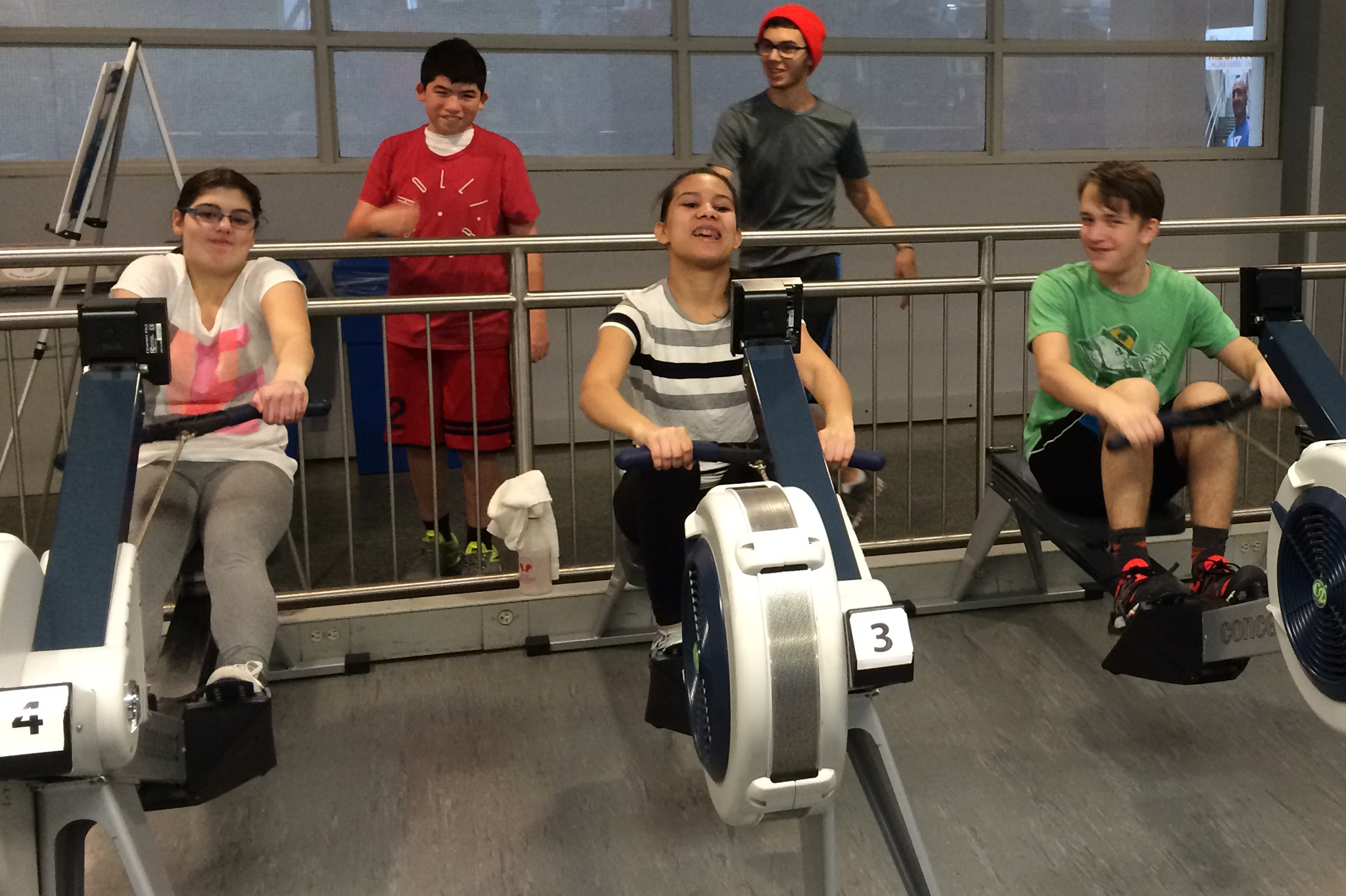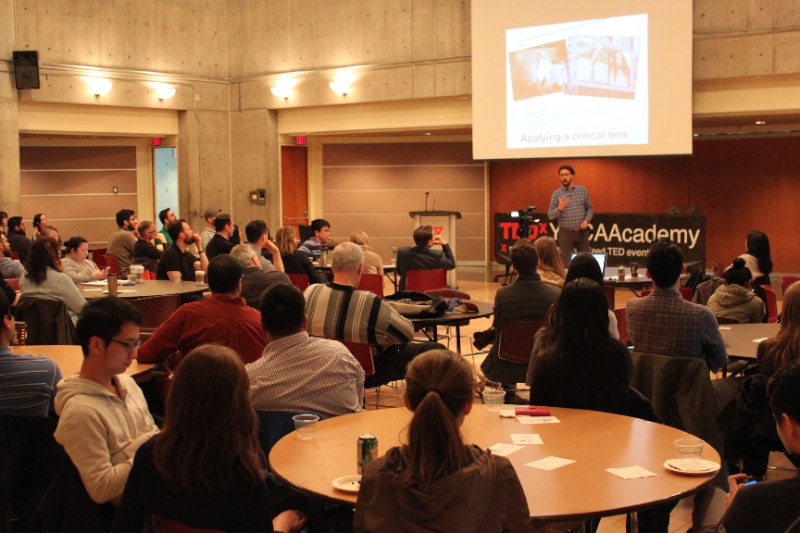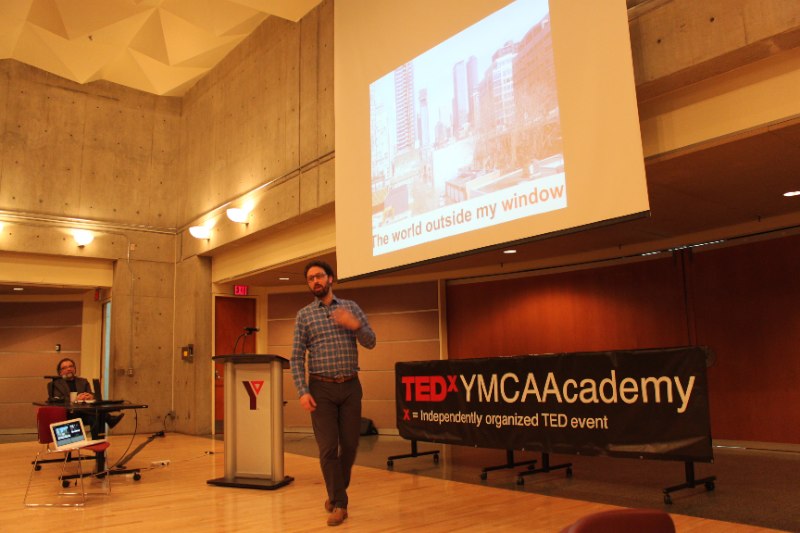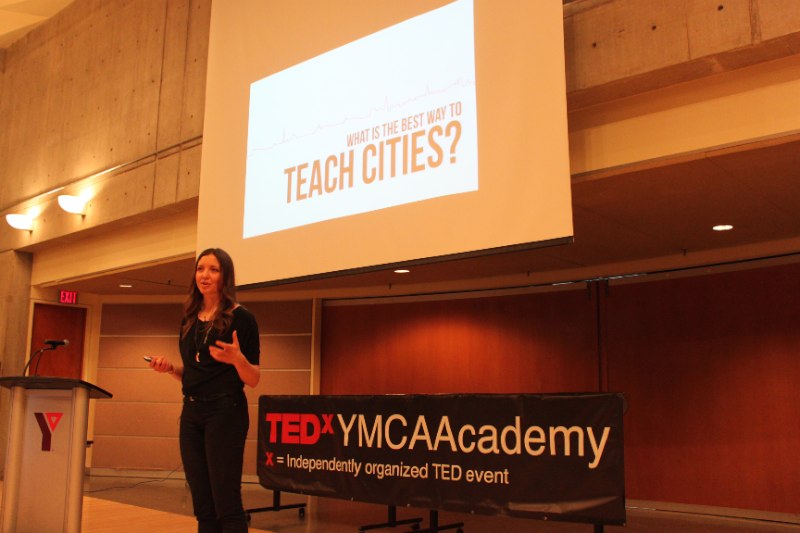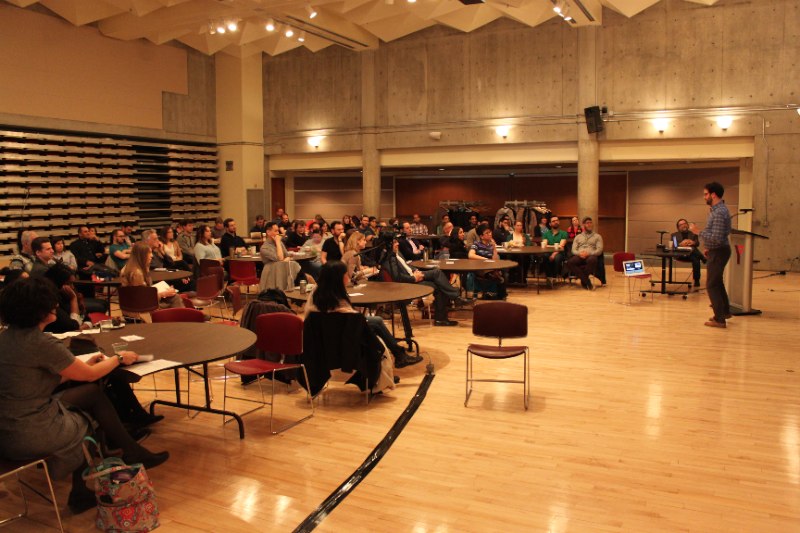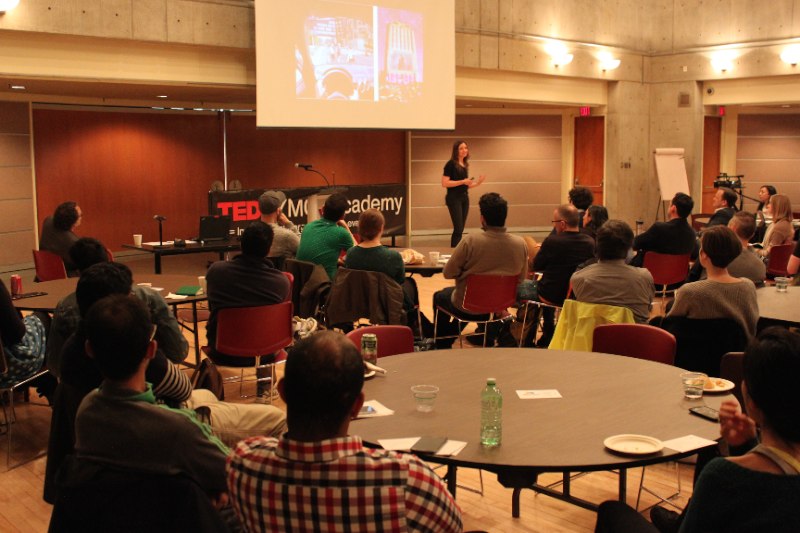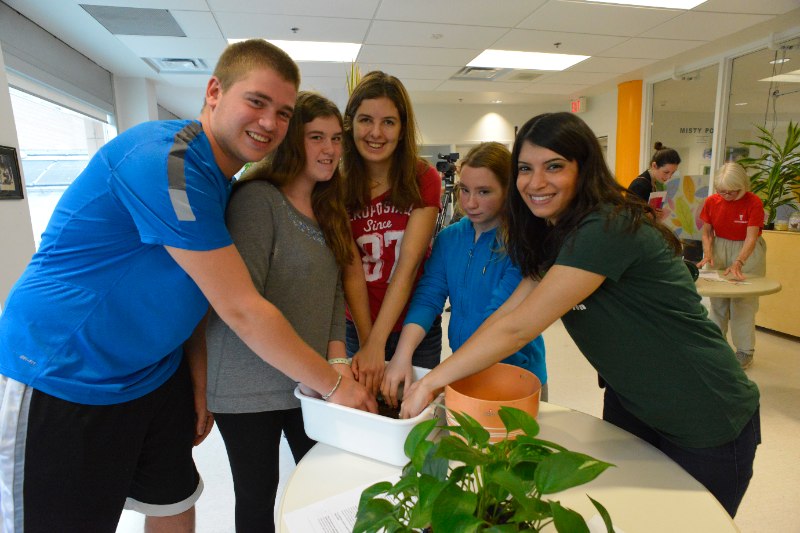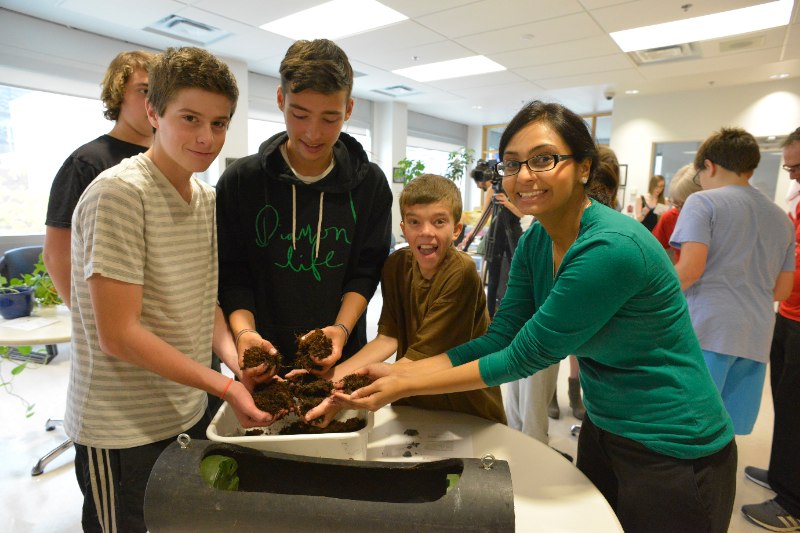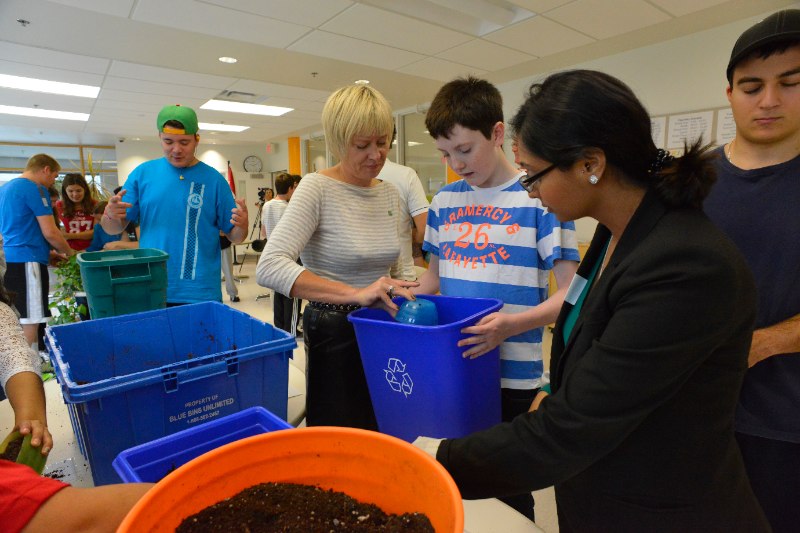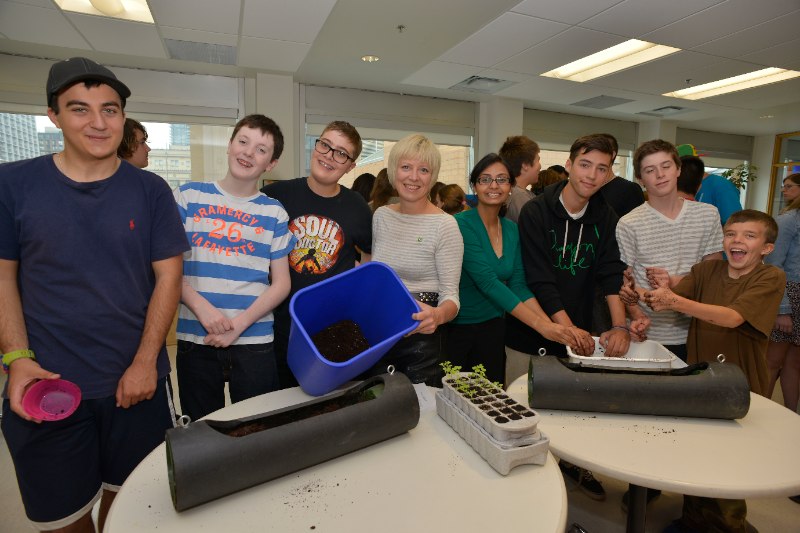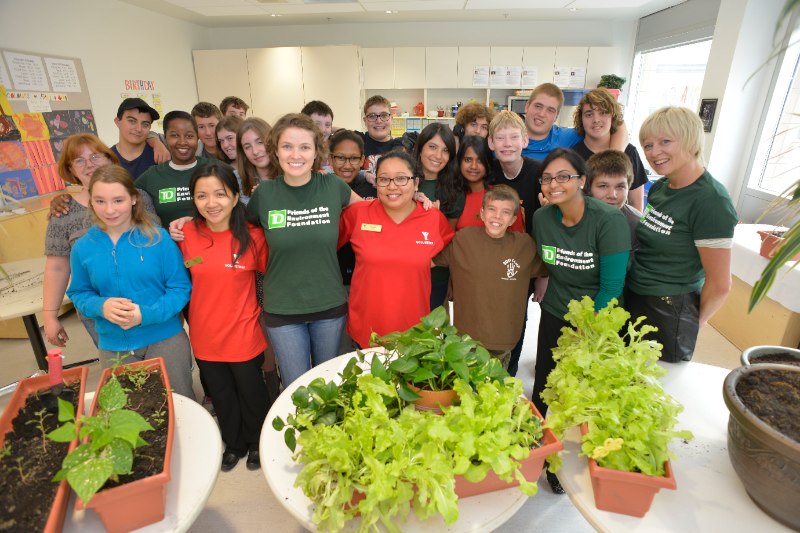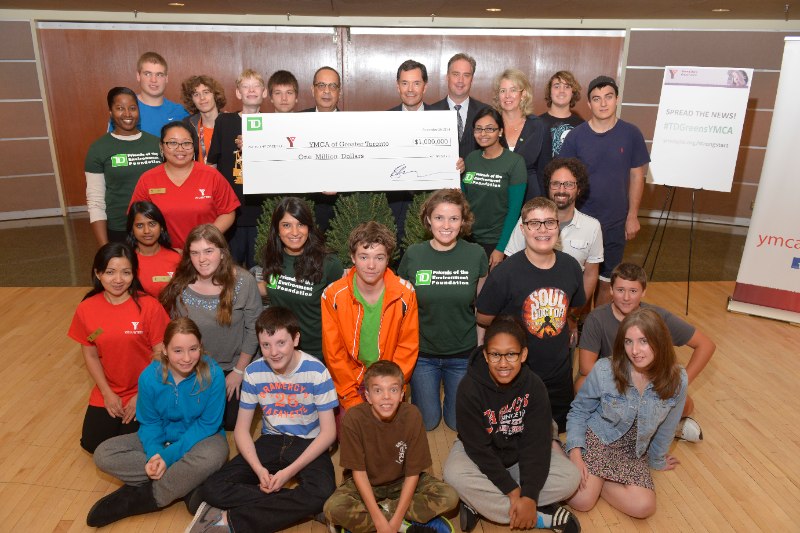A class project that investigates and integrates the in-progress revitalization of the West Don Lands.
Pivotal municipal decision-makers joining a high school class — not just as guest speakers, but in a mentorship and collaborative role.
Leveraging the power of grassroots advocacy initiatives to inform students’ senses of justice.
A field trip examining the impact of typefaces in advertising that simultaneously mitigates attention issues through the “beautiful cacophony” of the urban landscape.
These are just a few of the innovative ideas and exciting new approaches that were shared at “The City as Laboratory” — the 2015 edition of the annual TEDxYMCAAcademy speakers series.
Hosted by YMCA Academy Head of School Dr. Don Adams, this event featured talks by seven people who are on the vanguard of bringing urbanism to life for learners of all ages in Toronto:
- Andrew Davies — Executive Director @ No. 9 Contemporary Art & the Environment
- Zahra Ebrahim — Principal/Founder @ Architext and professor @ U of T
- Josh Fullan — Teacher @ University of Toronto Schools and Founder & Facilitator @ Maximum City
- Todd Harrison — Teacher @ YMCA Academy / Senior editor @ Spacing
- Leslie McBeth — Teacher @ Greenwood College / Facilitator @ Cohort21
- Shawn Micallef — Author, Toronto Star columnist, professor @ U of T & OCADU, and Senior editor @ Spacing
- Pamela Robinson — School of Urban and Regional Planning Graduate Program Director @ Ryerson
This year’s speakers brought a wealth of knowledge, passion, and energy to a sold-out crowd in the Toronto Central Grosvenor Street YMCA Centre auditorium — along with and inspired and inspiring vision for the future of education, in this city and beyond.
Toronto, like many cities around the world, is in the midst of a rapid transformation. An urbanizing world is an exciting educational opportunity in many respects, one that fosters new ideas, collaboration, and immersive engagement. It also presents myriad challenges, however; residents’ relationships with their cities are often complex, and sometimes fraught with experiences of injustice and hardship. For both of these reasons, though, it’s imperative to develop urban literacy skills; the opportunities are what make it exciting, while the challenges are what make it absolutely vital.
